Nagaland, a picturesque state in Northeast India, is a land of diverse cultures and traditions. The rich cultural heritage of Nagaland is beautifully showcased through its numerous festivals that are celebrated with great fervor and enthusiasm. These festivals not only bring communities together but also provide an opportunity for travelers to immerse themselves in the colorful tapestry of Nagaland’s traditions. Join me as I take you on a journey to explore some of the most vibrant festivals in Nagaland:
1. Sekrenyi (25 – 27 Feb) – Kohima – Angami Tribe: Sekrenyi, the festival of purification, is celebrated by the Angami tribe. During this three-day festival, you can witness traditional rituals and ceremonies that involve cleansing and purifying the community. A significant highlight is the “Kizie” feast, where traditional dishes are prepared and shared among the villagers, fostering a sense of unity and togetherness.
Angami tribe. During this three-day festival, you can witness traditional rituals and ceremonies that involve cleansing and purifying the community. A significant highlight is the “Kizie” feast, where traditional dishes are prepared and shared among the villagers, fostering a sense of unity and togetherness.
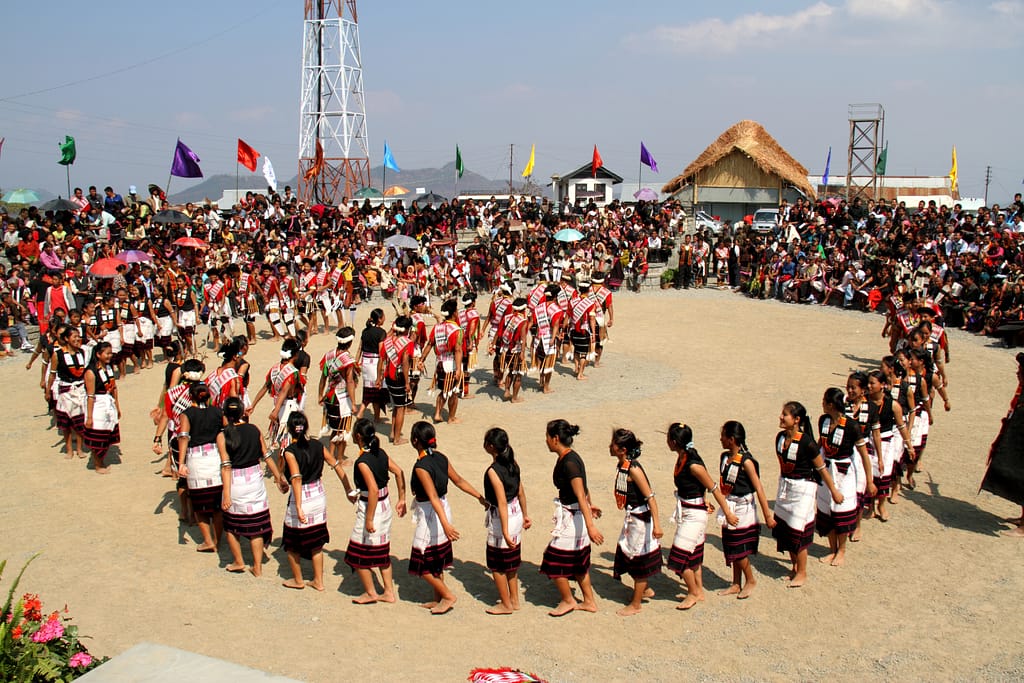
2. Moatsu (01 – 03 May) – Mokokchung – Ao Tribe: Moatsu is a joyful spring festival celebrated by the Ao tribe. The festival marks the end of the sowing season and the beginning of a new year. Vibrant cultural performances, folk songs, and traditional dances are integral to the festivities. You can also indulge in the exquisite craftsmanship of the Ao tribe, as they display their beautiful handwoven shawls and intricate beadwork.
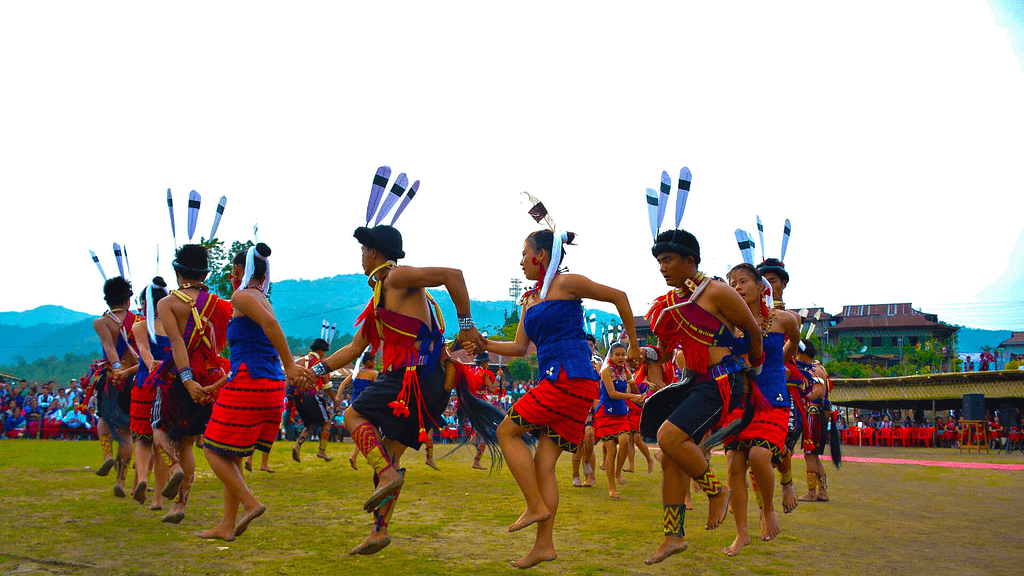
3. Tsukhenye (05 May) – Phek – Chakesangs: Tsukhenye is a lesser-known yet captivating festival celebrated by the Chakesang tribe. It is a day of giving thanks to the Almighty for a bountiful harvest. The festival is characterized by songs, dances, and a traditional feast where authentic Chakesang delicacies take center stage.
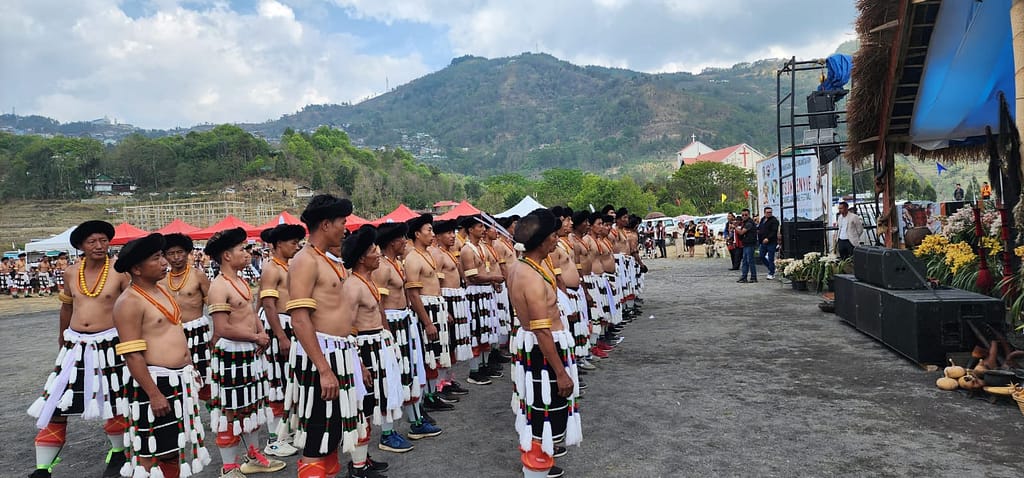
4. Sukrunyi (15 Jan) – Phek – Chakesangs: Sukrunyi is another harvest festival celebrated by the Chakesang tribe, but in January. This vibrant festival is filled with traditional games, songs, and dances, providing a glimpse into the Chakesang way of life and their reverence for nature.
5. Naknyulem (31 Jul) – Tuensang – Changs: Naknyulem is the homecoming festival of the Chang tribe, where people return to their ancestral villages to reunite with family and friends. The celebration is marked by singing, dancing, and age-old rituals that reflect the Changs’ deep-rooted connection to their land and heritage.
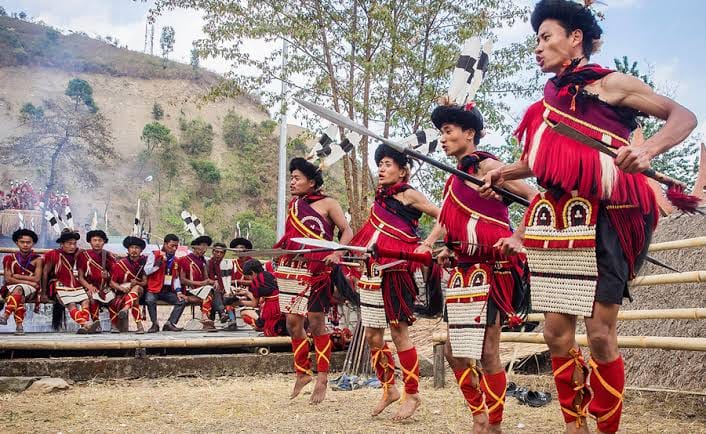
6. Miu (05 May) – Tuensang – Khiamniungams: Miu is a unique festival celebrated by the Khiamniungam tribe. The highlight of the festival is the “Kuthi” dance, performed by both men and women, with intricate steps and rhythmic movements that mesmerize spectators.
7. Bushu (Last week of January) – Dimapur – Kacharis: Bushu is the harvest festival of the Kachari tribe and is celebrated in the last week of January. During this festival, traditional rituals are performed to invoke the blessings of the gods for a fruitful harvest.
8. Mimkut (17 Jan) – Peren – Kukis: Mimkut is a vibrant post-harvest festival celebrated by the Kuki tribe. The festival is marked by songs, dances, and feasts, showcasing the Kukis’ cultural exuberance and artistic talents.
9. Aoleang (1-2 April) – Mon – Konyaks: Aoleang is a grand celebration of the Konyak tribe, symbolizing the arrival of spring. Intricate dances, elaborate costumes, and traditional games are part of the festivities, reflecting the Konyaks’ rich heritage.
10. Tokhu Emong (07 Nov) – Wokha – Lothas: Tokhu Emong is a post-harvest festival celebrated by the Lotha tribe, characterized by singing, dancing, and a community feast known as “Mangso.”
11. Monyu (01 – 02 April) – Longleng – Phoms: Monyu is a significant agricultural festival celebrated by the Phom tribe. The festival is marked by cultural performances, feasting, and traditional rituals.
12. Yemshe (05 Oct) – Phek – Pochuris: Yemshe is the harvest festival of the Pochuri tribe. It is celebrated with great enthusiasm, accompanied by traditional dances and songs.
13. Ngada (27 – 28 Nov) – Kohima – Rengmas: Ngada is the post-harvest festival of the Rengma tribe, celebrated with vibrant folk dances, songs, and the preparation of traditional delicacies.
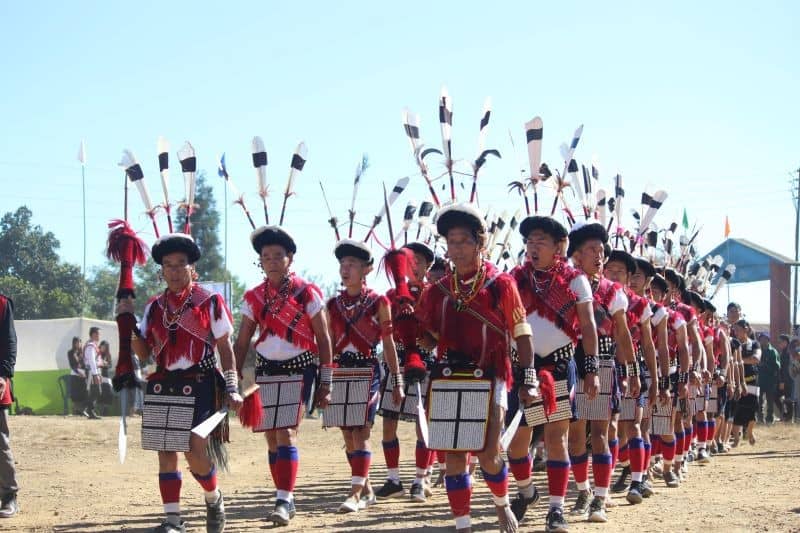
14. Mongmong (03 Sep) – Tuensang/Kiphire – Sangtams: Mongmong is the festival of friendship celebrated by the Sangtam tribe. The festival promotes unity, peace, and friendship among different communities.
15. Tuluni (08 Jul) – Zunheboto – Sumis: Tuluni is the most important festival of the Sumi tribe, celebrated with feasts, cultural performances, and traditional games.
16. Metumniu (4-8 Aug) – Tuensang/Kiphire – Yimchungriis: Metumniu is the festival of the Yimchungri tribe, celebrating the bountiful harvest and expressing gratitude to the Almighty.
17. Hega (10-15 Feb) – Peren – Leliangs: Hega is a significant festival of the Leliang tribe, celebrated with traditional songs, dances, and ritual




